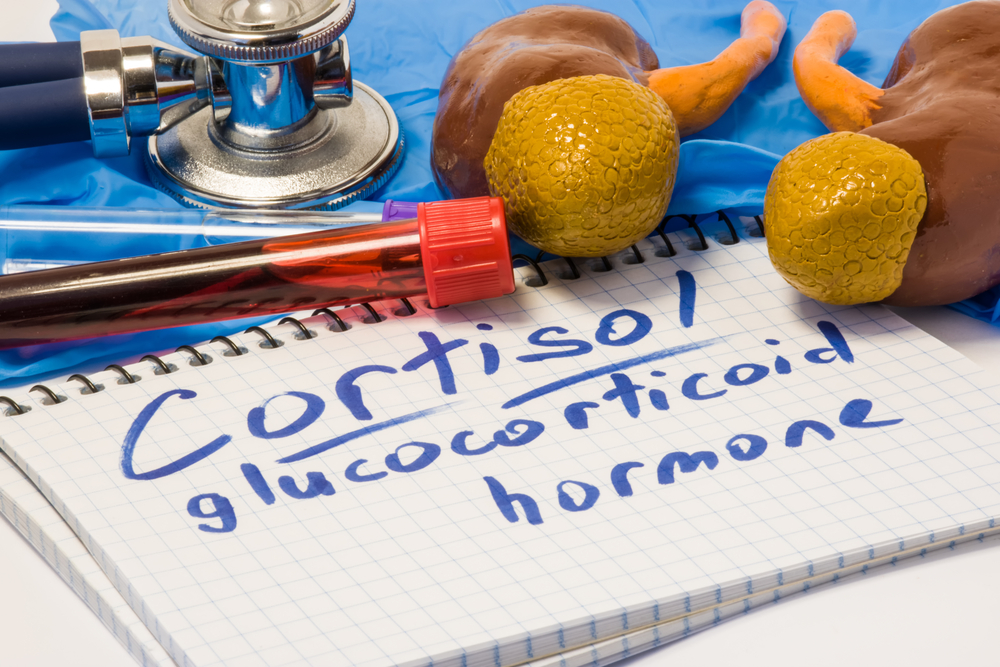Cushing’s syndrome is a condition that is popularly referred to as hypercortisolism. It occurs as a result of excessive exposure of your body to high levels of cortisol.
It can occur as a result of numerous reasons that both orally taken medications of cortisol, and naturally produced cortisol are inclusive.
Most times, this condition can easily be managed through treatments. These treatments aid in the balancing of your hormonal cortisol levels.
Symptoms
The development of this condition is closely associated with various symptoms.
These symptoms are indications that an individual has developed Cushing’s syndrome, and they include:
- Excessive weight gain or obesity
- Development of a thin skin which is susceptible to injuries.
- Acne
- Stretch marks visible on the abdomen, breast, thighs, and arms.
- Purple colored stretch marks
- Fatigue or tiredness
- Excessive deposits of fatty nutrient
- Weakness and aching of the muscles
The above-listed symptoms of Cushing’s syndrome are common among people. However, some specific types of signs are still developed by individuals with Cushing’s syndrome.
These symptoms include:
- High chances of contracting infections
- Hypertension also referred to as high blood pressure
- Regular changes in mood
- Anxiety and depression
- Headaches
- Irritability
- Heightened thirst
- Osteoporosis
- Heightened urination
In children
It is widespread and natural for children to develop Cushing’s syndrome. There are some specific types of symptoms that can be displayed in children and those listed above.
These symptoms include:
- Excessive weight gain or obesity
- Reduced rate of development and growth
- Hypertension, otherwise known as high blood pressure.
In women
Cushing’s syndrome is a prevalent condition diagnosed in most women. There are specific symptoms of Cushing’s syndrome, which are more specific to women.
These symptoms include:
- Growth of body and facial hair; these could appear in areas such as the abdomen, face, thighs, chest, and neck.
- Women who develop Cushing’s syndrome are more likely to experience missed or irregular menstruation than women who do not have Cushing’s syndrome.
In men
Just as seen in women and children, men are likely to experience some specific symptoms of Cushing’s syndrome and the ones listed above.
 These symptoms include:
These symptoms include:
- Reduced fertility levels
- Erectile dysfunction
- Low libido or sex drive
Causes of Cushing’s Syndrome
Cushing’s syndrome’s primary and most known cause is the excessive production and storage of cortisol in your body. The glands responsible for the creation of the cortisol hormone are known as the adrenal gland.
It performs a variety of functions like:
- The proper regulation of your circulatory system and your blood pressure.
- The reduction of inflammation in your immune system
- Conversion of nutrients like protein, carbohydrates, and fat into usable energy.
- Stabilizing the impact of insulin
- Reacting to stress
The body might secrete excess cortisol hormones for various reasons which include:
- Heightened levels of stress, with stress closely associated with an illness, surgery, and injury inclusive.
- Intensive athletic exercises and training.
- Excessive intake of alcohol
- Anxiety, emotional stress, and depression
- Deficiency in essential nutrients.
Corticosteroids
Another popular cause of Cushing’s syndrome is the intake of corticosteroids medication for treatments.
These medications are used to treat certain illnesses like lupus or to restrict the denial of an organ. The intake of this medication for an elongated time can cause severe damages and lead to Cushing’s syndrome.
The use of this medication to treat aches in the back or joints can result in the development of Cushing’s syndrome. However, the administration of little portions of this medication cannot cause Cushing’s syndrome, like the amount found in inhalants.
An example of corticosteroid medications that can result in the development of Cushing’s syndrome is prednisone.
Tumors
Various types of tumors can result in excessive secretion of cortisol hormone in the body.
Few of these are:
Pituitary gland tumors
When your pituitary gland produces excess adrenocorticotropic hormone responsible for the stimulation of cortisol in your adrenal gland, it results in Cushing’s syndrome.
Ectopic tumors
Ectopic tumors are referred to as tumors that are located on the outside of your pituitary gland, which is responsible for the production of adrenocorticotropic hormone. These tumors are mostly found in the thyroid gland, lungs, thymus gland.
Adrenal gland abnormality or tumor
The irregularity of the adrenal gland can result in unusual arrays of cortisol production. As a result of this, an individual can diagnose Cushing’s syndrome.
Familial Cushing’s syndrome
The development of Cushing’s syndrome is not hereditary at times. However, there are high chances of the growth of tumors in your endocrine glands.
Cushing’s disease
Once you develop Cushing’s syndrome due to the overproduction of adrenocorticotropic hormone by your pituitary gland, it is referred to as Cushing’s disease. Just like Cushing’s syndrome, this condition occurs in men, women, and children.
Treatment for Cushing’s syndrome
The main focus while treating Cushing’s syndrome is the reduction of the cortisol hormone in your body. It can be done or achieved in numerous ways. Your treatment is based on what caused the development of Cushing’s syndrome.
You might be given a medication that aids in the reduction of your cortisol levels.
These medications assist in the decrease in the production of cortisol and adrenocorticotropic hormone in your body. There are varieties of drugs that aid in restricting the impact of cortisol on your tissues.
They include:
- Pasireotide (Signifor)
- Mitotane (Lysodren)
- Mifepristone for persons who have type 2 diabetes
You must reduce your intake of corticosteroids if it is inclusive in your regular medications. Visit you, doctor, for supervision on how to change your medications, because it requires full medical tumors assistance.
Tumors can either be noncancerous or cancerous. If you develop a Cushing’s syndrome as a result of tumors, it might be needed to remove the tumors through surgical procedures.
If diagnosed that cancer is not removable by surgical methods, you might need to undergo chemotherapy or radiation therapy.
Diagnosis of Cushing’s syndrome
It is quite tricky when it comes to diagnosing Cushing’s syndrome; this occurs because it displays symptoms like fatigue, resulting from another illness. Besides, Cushing’s symptoms can occur as a result of a variety of reasons.
During your assessment, you would be asked about your health history and your current medications. Physical tests would also be carried out to determine signs of bruises, buffalo humps, and stretch marks.
You might undergo a few laboratory tests like:
Salivary cortisol measurement
You would give a sample of your saliva during the night to test for your level of cortisol to know if your cortisol levels are heightened.
This is done during the night time because individuals with a standard range of cortisol levels usually have the right amount during the evening time or night period.
24- hour urinary free cortisol test
You would be required to store your urine for twenty-four hours, and then bring in a sample to test for your cortisol levels.
Low-dose dexamethasone suppression test
During this test, you would be required to take an amount of dexamethasone during the evening. During the morning period, you would undergo a check for your cortisol level.
Basically, with the intake of dexamethasone, your cortisol levels are expected to drop. However, if this does not occur, it signifies that you have high levels of cortisol hormone.
After you undergo a series of tests for Cushing’s syndrome, your doctor would access the reason for the overproduction of cortisol hormone in your body. There are various tests whose aims are for the determination of the causes of Cushing’s syndrome.
They include:
Imaging studies
Tests like CT and MRI scans are used to scan the adrenal and pituitary gland for the search of tumors.
Adrenocorticotropic hormone test
Once the adrenocorticotropic hormones are tested and come out low with the levels of cortisol being high, it could indicate the development of a tumor in your adrenal glands.
Diet for Crushing’s syndrome
Even though making a few changes in your diet is not a treatment for Cushing’s syndrome, it can help keep your cortisol levels in balance and check.
There are various dietary tips which can aid in assisting people who have Cushing’s syndrome-like:
 Watching your blood sugar
Watching your blood sugar
You must reduce your sugar intake because Cushing’s syndrome causes an immense increase in your blood glucose.
Watch your intake of calories
Seeing that excessive weight gain is a significant symptom of Cushing’s syndrome, it is essential that you watch what you eat because it impacts your overall health.
Reduce your intake of alcohol
Excessive alcohol intake has been proven to increase the level of cortisol produced in your body.
Reduce your intake of sodium
The excessive consumption of sodium should be limited because Cushing’s syndrome is closely associated with hypertension. You can start this by reducing your salt intake.
Conclusion
Cushing’s syndrome is a condition that occurs when there is an overproduction of cortisol in your body. There are several symptoms that can indicate that an individual has developed this condition.
These symptoms include excessive weight gain, fatigue, depression, and is easily susceptible to injuries. However, this condition can be treated through medication or surgical methods.
It is essential that you visit your doctor at intervals.








COMMENTS